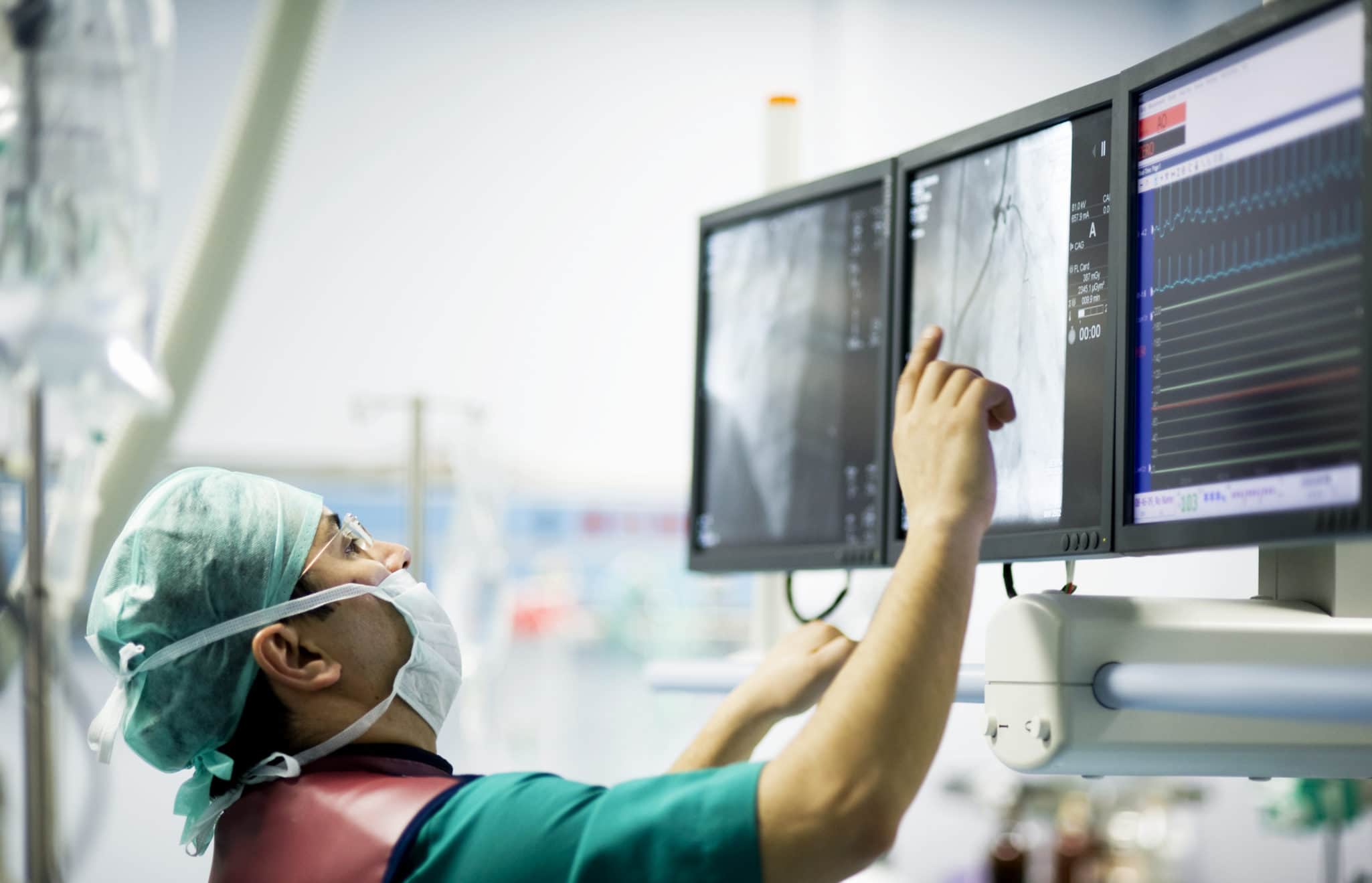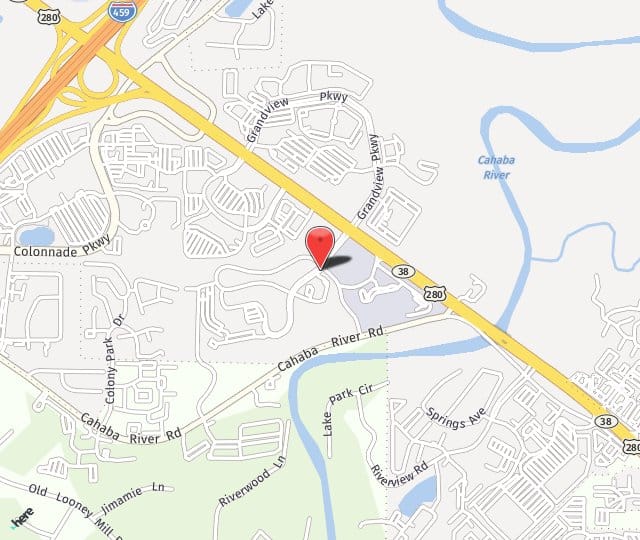
What is Ablation Therapy?
Ablation therapy is a minimally-invasive procedure using catheter ablation to correct arrhythmias, or problems with the heart’s rhythm, including atrial fibrillation. This treatment either scars or destroys the tissue in the heart where the abnormal heart rhythms are either triggered or sustained.
Dr. Macy Smith generally does cardiac ablation therapy by using a flexible catheter. The catheter uses radiofrequency energy, cryothermy, or laser energy to create the scar tissue. Cardiac ablation can also be done through open-heart surgery, but this is to be avoided unless absolutely necessary.
"Dr. Smith performed an ablation on my mom after months of getting the runaround from other doctors. He heard her case, understood how desperately she needed her procedure, and wasted no time helping her. His bedside manner is calm and reassuring, and his compassion is so tangible. Many, many thanks to Dr. Smith and his group for taking such immediate and thorough care of my mother during her health struggles!"
Candidates for Cardiac Ablation
The purpose of cardiac ablation therapy is to correct problems with a patient’s heart rhythms. For your heart to beat correctly, it contracts regularly in rhythm. These contractions are initiated by electrical impulses that follow a precise path through your heart. Any interruption in these impulses can cause arrhythmia.
If you have an arrhythmia, ablation isn’t the first treatment option Dr. Smith will use. Cardiac ablation could be a good option for patients who:
- Haven’t responded to medications to treat their arrhythmia
- Experienced serious side effects with these medications
- Have types of arrhythmias that respond well to ablation
- Are at a high risk for complications, such as cardiac arrest, due to their arrhythmias
Types of Ablation Therapy
The goal of ablation is to destroy the pathway of the abnormal rhythm. It can also disconnect the electrical pathway between the upper chambers (atria) and lower chambers (ventricles) of the heart. The type of ablation Dr. Macy Smith will use depends on the type of arrhythmia. These are the types of ablation:
- Atrial flutter ablation — This creates scar tissue within the upper right chamber of the heart to block the electrical signals causing a fluttering heartbeat. Atrial flutter occurs when your heart’s electrical signals tell the upper chambers of your heart to beat too quickly.
- Pulmonary vein isolation — This creates scar tissue in the part of the left upper chamber of your heart where each of your four pulmonary veins connects.
- Supraventricular tachycardia — This ablation creates scar tissue within the heart’s upper chambers.
- Ventricular tachycardia ablation — Ventricular tachycardia occurs when electrical signals within the lower chambers of your heart cause your heart to beat too quickly. This ablation eliminates areas where the erratic signals arise.
Ablation Therapy for Atrial Flutter
How to Prepare for Heart Ablation
Usually, before the procedure, you’ll be asked not to eat or drink anything for at least 6 to 8 hours. Tell Dr. Smith about any medicines you take as he may ask you not to take them before your test. Don’t stop taking your medicines until you are told to do so.
You will be asked to arrive at the hospital several hours before your scheduled procedure time. Your first stop is usually the Admissions Department. From there you may be asked to go to the laboratory or to pre-admission testing. Once admitted to the hospital, you will be sent to a pre-op area where you will receive an IV line, the nurse will review your entire medical history and a pre-op checklist will be completed.
Depending on your procedure, you may be sent for an EKG or TEE (transesophageal echo). The hospital anesthesia department may also interview you prior to the procedure.
Some additional items to consider:
- Bring a list of all the medications you are currently taking, including the dosage.
- Leave all your jewelry at home.
- Arrange for someone to drive you home the day after your procedure.
Cardiac Ablation Procedure
Dr. Macy Smith typically uses catheter ablations for the procedure. Cardiac ablation is a closed chest procedure on a beating heart. The procedure usually takes 1-3 hours, but If you have more than one area of abnormal tissue, the procedure will take longer.
Before the procedure begins, the nurse will clean and shave the area where Dr. Smith will be working. You will receive a local anesthetic to numb the needle puncture site. You will also receive anesthesia to prevent pain and possibly a sedative to help you relax.
During the ablation, Dr. Smith inserts a needle into the vein and places a tube, or sheath, through the needle. The catheters will be threaded through the sheath and guided to various places within your heart using X-ray imaging. The catheters have electrodes at the tips that send electrical impulses to your heart to record the heart’s electrical activity. This process of determining what’s causing your arrhythmia is an electrophysiology study. This will determine the best way to treat your arrhythmia.
Once Dr. Smith identifies the abnormal heart tissue behind your arrhythmia, he aims the catheter tips at the area of abnormal heart tissue. The catheter uses an energy source to create a lesion of scar tissue. This is called a conduction block, which stops the erratic electrical signals from traveling through the heart.
"I had been suffering from frequent atrial fibrillation for 13 years. Medications did not help and I was told by several cardiologists that there was nothing they could do and not to worry about it. On my first visit to Dr. Smith, he assured me that there was a remedy. Three weeks later he did a cardiac ablation. I had one more episode 2 weeks later but have had no other problems. I have my energy back and a renewed zest for life! Thank you Dr. Smith!!!"
Dr. Macy Smith Performing Cardiac Ablation
What to expect after Catheter Ablation
Once ablation is complete, Dr. Smith will remove all sheaths placing a small stitch in the groin before you wake up. You will then be moved to the recovery room. You should keep your leg straight for 6 hours after the sheaths are removed. The nurse will watch you carefully and check your heartbeat and vital signs (pulse and blood pressure). Tell the nurse right away if you notice any swelling, pain or bleeding at the puncture site, or if you have chest pain. Before you leave the hospital, the nurse will begive you written instructions about what to do at home.
Recovery After Cardiac Ablation
Cardiac ablation is a successful, safe procedure. It has a very low risk of complications. Most patients can return home after the procedure (we’ll first monitor your heart rate for a few hours). It is important that you follow the instructions given by Dr. Smith.
Patients should not drive or drink alcohol for 24 hours after they leave the hospital.

They should also avoid heavy physical activity for a few days. Dr. Smith will let you know when you can return to strenuous exercise.
It is normal for a small bruise to form at the puncture site. If the site starts to bleed, lie flat and press firmly on top of it. Have someone call Dr. Smith’s office or the hospital. Call 911 if you notice that the puncture site is swelling up very fast and if bleeding does not slow down when you press on it firmly.
Patients should call Dr. Smith’s office if you are experiencing the following:
- Your leg with the puncture becomes numb or tingles, or your foot feels cold or turns blue.
- The area around a puncture site looks more bruised.
- The spot begins to swell, or fluids drain from it.
- You feel pain or discomfort in your chest that moves into your neck, jaw or arm.
- Feeling sick to your stomach or sweating a lot.
- You have a fast or irregular heartbeat.
- You feel short of breath.
- Dizziness or lightheaded enough to have to lie down.
How successful is Ablation Therapy?
The success of ablation therapy can vary depending on particular arrhythmia. But Dr. Smith has a success rate of over 90 percent when typically using radiofrequency ablation. Cardiac ablation is now a popular and the preferred treatment for many types of rapid heartbeats.
Schedule a Consultation
For more information on ablation therapy and to see if this is the right treatment for you, call 205-971-7566 to schedule a consultation with Dr. Macy C. Smith. Dr. Smith serves Birmingham, AL and surrounding areas.

